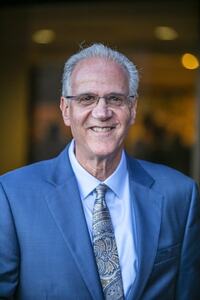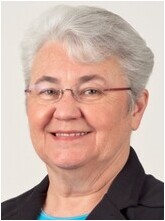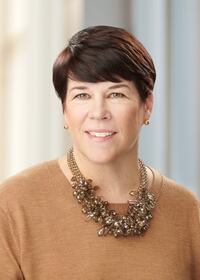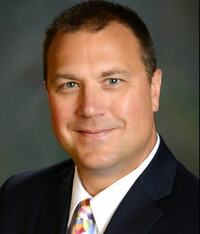 Career marathon includes numerous sprints, selfless relays
Career marathon includes numerous sprints, selfless relays
For some healthcare supply chain leaders, calling it a career and embracing retirement simply cannot come soon enough — particularly after experiencing the breadth and depth of industry disruptions during the global COVID-19 pandemic that emerged in first quarter 2020 and arguably continues more than two years later.
Whether achieving milestones or accomplishing capstones, many believe that measuring a person's career should be based on what they do and not who they are or who they know so they can skip stones. That includes contributing to the development of others through mentoring, teaching and training under the presumption that as mentors they know enough to carry out that mission.
Leaders & Luminaries, the strategic and tactical thinking journal of the Bellwether League Foundation, tapped a number of Bellwether Community supporters who are award-winners and/or sponsors for their insights on what all Supply Chain leaders should know and do before they retire and leave the industry and profession — hopefully in a better state.

Successfully build bridges
"Developing a formal strategic or integrated partnership between a provider and supplier should be on everybody's 'bucket list.' These are not easily formed, but truly essential to advance our healthcare supply chain industry. Other industries outside healthcare have this maturity character and these relationships have become part of the fabric of achieving mutual value. Alignment of key objectives, determining and measuring value are key attributes of these working relationships and they demand a planning discipline to be effective. Governance and management frameworks are essential and of course, setting the context for these relationships to evolve with executive leaders' endorsement is necessary for these to be successful. "While our time as supply chain leaders are locked up on addressing internally the challenges we each face among our own organizations, it is so critical that we push for more value beyond the transactional elements of a provider-supplier relationship that can bring far more impact to our healthcare delivery system."

Share experience selflessly to attract, develop talent, skills
"Supply chain leaders should know that their careers are short and transitory, as with everything human. Knowing that, they should also know that careers spanning decades accumulate vast amounts of worthwhile knowledge — knowledge that is needed to help move the discipline forward. Historically, many insecure supply chain leaders hoarded knowledge to gain and retain power. Consequently, the forward movement of the discipline was seriously hindered. If the events of the past two years have taught us nothing else, it has taught that the key to survival and prospering during times of crisis is to share knowledge and collaborate. Compared to other industries, the healthcare supply chain as a formal concept is nascent — barely two generations old.
"As the industry strives to incorporate the best practices of supply chains outside of healthcare, it needs to draw on the knowledge and experience of those who have spent their careers in healthcare. The elder statespeople of the healthcare supply chain need to make themselves a resource to those coming after them. They need to implement career paths and succession plans for their teams. They need to create an environment that will attract people with the skillsets the industry and the discipline needs. They need to create a situation in which the best will be drawn to healthcare — not the second or third best."

Plan, prep for the future
"Assure succession planning. This is not only for your role but how you have internally prepared executive leadership, customers you serve, programs you support, staff you are accountable for as well external customers such as distributors, suppliers and professional organizations. This starts from Day One as a new hire through good management practices which are not points in time but lifelong learning journeys. Surround yourself with expertise to balance your weaknesses and bolster your strengths, provide policies, procedures, guidelines, audits, inspection readiness, up to date tools/techniques. Nurture a collaborative culture, set an example, mentor and be diligent to continual relationship building. It is not a sprint but a marathon to leaving an organization in a better place than when you arrived not because of you but what you gave."

Share experience to open minds, develop and grow creatively
"Make it a point to help others learn and grow. Share your knowledge and experience in a way that opens minds and teaches future leaders to think creatively, to understand how to work with other teams, departments and organizations. Also, help them understand how they can access resources and ensure the supply chain team is always adding appreciable value. Consider how you can share your wisdom and experiences, the best of what you have done and learned, with the next generation — and encourage them to continue driving positive change through innovation. "It is incumbent on today's leaders to give back. They have an important role to play in shaping the next generation of leaders, enabling them to continue making supply chains better, even as the world continues to change."

Think of transitioning to a 'new phase' instead
"A proactive supply chain leader is always on the lookout for good talent, especially for potential successors. One never knows when new opportunities may present, whether it be a promotion, new endeavor or retirement. If retirement is on the horizon, preparing your exit strategy, including a discussion with your boss is a good place to start. If you have the time, aligning key projects and responsibilities to successors is important for a good transition. Participation in the choice of a successor can be helpful to the organization. Also, when the time is right, being open with your staff about your plans and the plan going forward for the organization can keep staff on track and ease tensions inevitable with the change that is going to happen. I struggle with 'calling it a career' as I think of it as more a transition to a new phase where knowledge is applied in multiple different ways, opening new doors and moving forward on different paths."

Prep, prop up colleagues, peers
"Make sure that they have successfully mentored subordinate leaders to either replace them and/or move to a peer role in another organization."

Don't just think, but work outside the box
"Work in a role outside of supply chain or work a supply chain role in a different industry.

Think like your customer, supplier
"Walking a mile in their shoes ... but it really depends on whether you are asking from the perspective of a manufacturers, distributor, GPO or provider. Each of those positions brings different meaning and experiences to the forefront for SC leaders to have a thorough understanding of the issues the others along the supply chain encounter and deal with in optimizing patient care.
"Another area is to review GSA reports on supply chain issues, the costs of supplies, items, etc. Understanding the pedigree of components used in medical devices, consumable supplies and of course drugs, raise additional areas where supply chain leaders should have some experience and knowledge.
"When you think about the issues of the pandemic, the other issues that come to the forefront are the interactions with the public health department and officials. Local interactions should be possible for all to at least be aware of what the local public health organization is engaged in, as well as moving up the chain to the area/region/state and ultimately the federal levels."

Embrace the gift of giving
"Pass on their stories of successes and failures to someone you are mentoring. Sharing your experience (one's intellectual capital) can be priceless."

Apply a clinical eye for a critical review
"Understand the perception of the clinical staff about the supply chain and its contribution to patient care. Learn from what they say."